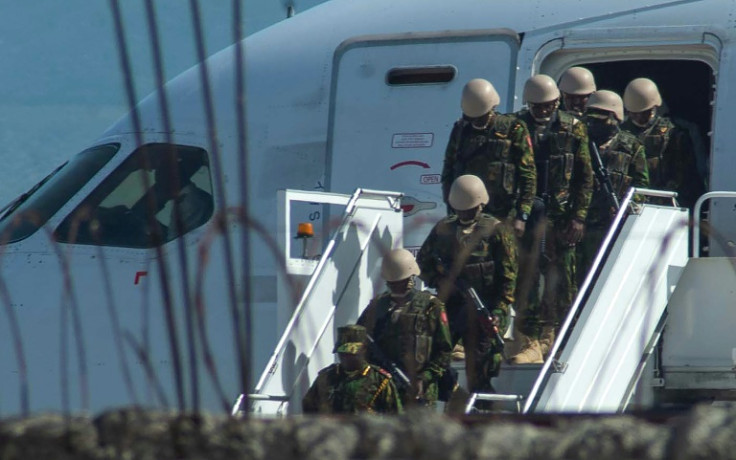
The first contingent of Kenyan forces finally arrived in Haiti on Tuesday, kicking off their mission of helping local law enforcement fight against criminal organizations that have taken over large swaths of the country.
Wearing camouflage and white helmets, the forces were greeted on the Toussaint Louverture International Airport by Haiti National Police, whose forces have been overwhelmed by the gangs that now control more than 80% of the capital, Port-au-Prince.
The arrival was long overdue, as Haitian authorities had requested international assistance over 20 months. A little over a year ago, Kenyan president William Ruto volunteered local forces to lead the mission. However, the initiative faces numerous challenges, both local and international.
The measure was challenged in local courts more than once, as the opposition rejected the move. And, at the international level, the force for months didn't get the necessary funding to move forward with the mission.
Republican leaders blocked a funding request by the Biden administration, which had pledged $300 million for the mission. However, the government has circumvented Congress in different ways to send money for equipment, training and the construction of a base operation at the airport.
The 2,500-strong force will also include members from Jamaica, Chad, Bangladesh and Benin. Haiti currently has about 4,000 officers on duty, a figure that pales to the approximately 38,000 the Untied Nations say the country needs to achieve median levels of policing.
They will find a country plunged into chaos. A recent report by the International Organization for Migration showed that nearly 580,000 people have been internally displaced across the country, a 60% increase since March.
The report added that practically all of the internally displaced are being hosted by communities "already struggling with overburdened social services and poor infrastructure, raising further concerns about tensions with the potential to spark future violence."
In the capital, Port-au-Prince, two thirds of those displaced live in "spontaneous sites with very limited access to basic services." "Schools and learning institutions currently make up 39 of the 96 active displacement sites and host 61,000 people, severely limiting school attendance. Sustainable, decent employment opportunities, equal access to basic services, and access to education for both IDPs and host communities are urgently needed," the release adds.
© 2024 Latin Times. All rights reserved. Do not reproduce without permission.







